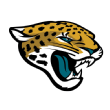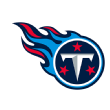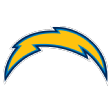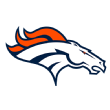What I've done below is outline the five NFL franchises that saw their rosters get markedly better in the 2017 NFL draft. I could argue that the New England Patriots and Dallas Cowboys also should be on this list based on how they made the most of their draft assets, but how much can the bottom line improve when their combined 2016 regular-season record was 27-5?
This is all about the teams that should feel a lot better about their rosters right now, in comparison to before the draft.

Jacksonville Jaguars
This is really about the Jaguars changing their identity on offense. The best way to protect a quarterback like Blake Bortles, who is last in the league with 63 turnovers since 2014, is to take the ball out of his hands. That means running the ball more, working the clock and relying on an ascending defense to win games. With RBs Chris Ivory and T.J. Yeldon both having struggled with injuries, it made sense to target a workhorse back like Leonard Fournette in Round 1. He has a rare combination of size, speed and power, and was the best back in this draft for a team looking to become more ground-and-pound.
The Jaguars did well to draft OT Cam Robinson, who's a strong run-blocker, to help pave the way for Fournette on the ground. He's special once he gets a sliver of daylight. The offensive line is still a work in progress, but in a make-or-break season for Bortles, Tom Coughlin & Co. have given the quarterback his best supporting cast since his arrival in Jacksonville three years ago. Fifth-round linebacker Blair Brown doesn't need to be a star with Myles Jack and Telvin Smith also patrolling the second level, but his steady tackling ability will fit right in on a defense that ranked fourth overall in rushing yards allowed after first contact last season (1.42).

Tennessee Titans
The Titans entered this draft with Rishard Matthews and 2016 fifth-rounder Tajae Sharpe Nos. 1 and 2 on the wide receiver depth chart. Both are nice complementary pieces, but GM Jon Robinson knew he needed to find someone who could grow into a bona fide No. 1 wideout in the NFL. He got that in Corey Davis, who's a crisp route runner and shows the ability to make contested catches in traffic. Robinson didn't stop there, snagging two other explosive pass-catchers for QB Marcus Mariota: WR Taywan Taylor and TE Jonnu Smith. Taylor fills a hole at slot receiver, while Smith will complement fellow tight end Delanie Walker nicely in the passing game.
Outside of wide receiver, cornerback was the Titans' next biggest need, and they took care of that by selecting Southern California's Adoree' Jackson with their second first-round pick. Jackson will give Tennessee an immediate boost in the return games (he had four return TDs last season), and while his coverage technique is still a work in progress, he has tremendous upside because of his ball skills and speed.

Los Angeles Chargers
The Chargers did a terrific job of finding players at good values, while also filling their biggest needs. Forrest Lamp was our top-ranked offensive lineman, and the Chargers snagged him in the second round. What a steal. He should start in Week 1 as a rookie and provide an immediate boost at guard for QB Philip Rivers. They didn't stop there, either, grabbing guard Dan Feeney in the third round. While he's not as polished as Lamp, Feeney will push Orlando Franklin for playing time as a rookie. Both additions should help improve an offensive line that allowed pressure on 31.5 percent of dropbacks last season, 27th overall.
WR Mike Williams gives Rivers another big-bodied receiver who can win in contested-catch situations. He joins WR Keenan Allen, TE Hunter Henry and WR Travis Benjamin in a formidable pass-catching crew. I also liked the value of getting DB Desmond King in the fifth round. Because of his versatility, King improves the Chargers' depth at both safety and cornerback.

Minnesota Vikings
The Vikings didn't have their first pick until the second round, but that didn't stop them from snagging one of the most explosive players in this draft, RB Dalvin Cook, who fell further than he should have based on character and durability concerns. With Latavius Murray also in Minnesota, Cook won't have to carry the load as a rookie.
GM Rick Spielman did a nice job addressing the team's hole at defensive tackle with a high-upside player in Jaleel Johnson. He's one of the most explosive interior pass-rushers in this class and gives the Vikings some insurance if Sharrif Floyd is unable to play again. I also love the addition of center Pat Elflein. He has the versatility to play multiple positions along the interior and has the requisite experience and intelligence to make the jump from college to be an immediate NFL starter.

Denver Broncos
Denver saw its quarterbacks get pressured on 31.5 percent of dropbacks last season, 26th in the NFL. The addition of Utah's Garett Bolles, who has the quick feet and length to grow into a starting left tackle, is a good first step toward better protecting whoever starts at QB next year for the Broncos. John Elway didn't stop there, though, plugging holes at defensive end, slot receiver and tight end with some of my favorite players in the draft.
DE DeMarcus Walker plays his tail off and gives Denver a strong run defender who can be disruptive as a pass-rusher when reducing inside. WRs Carlos Henderson and Isaiah McKenzie both made my 2017 All-Satellite team because of their speed and ability to make defenders miss in space. Henderson is the better receiver of the two (19.6 yards per catch in college), but don't overlook McKenzie's ability in the return game (six career return TDs). And at tight end, the Broncos got one of the biggest steals of the draft, when Michigan's Jake Butt fell into their lap in the fifth round. He's still recovering from a torn ACL, but Denver's offense was one of the league's worst at tight end last year (53 catches, ranked 31st overall). Butt will be an immediate upgrade when he's healthy.
